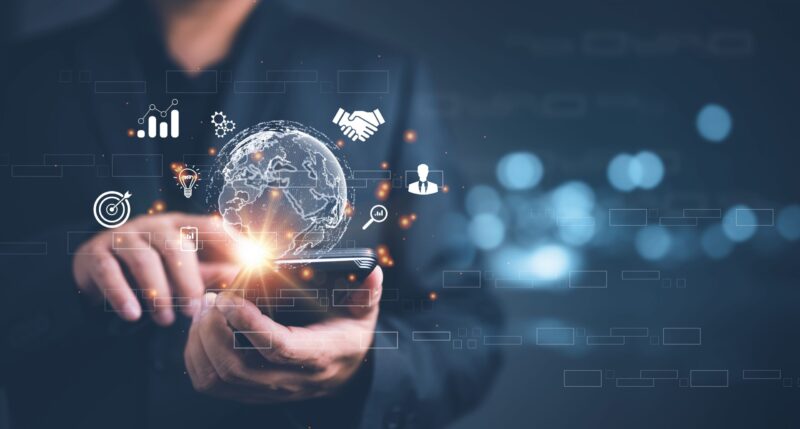The business landscape in 2025 is unlike anything the world has seen before. Global markets are now governed by innovation-led models that prioritize speed, sustainability, personalization, and platform integration. As technology reshapes commerce, businesses that adapt to these emerging frameworks are thriving — while legacy models struggle to stay relevant.
From India’s digital-first startups to Silicon Valley’s AI-driven enterprises, 2025 is defined by business models that are agile, decentralized, and value-focused.
Platform-as-a-Business: The Rise of Everything-as-a-Service (XaaS)
2025 is the year when the platform model has evolved far beyond ride-sharing and food delivery. Today, platforms dominate healthcare, logistics, legal services, and education. Known collectively as Everything-as-a-Service (XaaS), these models use cloud, APIs, and subscription ecosystems to deliver value.
Instead of owning physical assets, companies now own networks, data, and user loyalty. From edtech platforms offering AI-personalized lessons to legal startups selling access to virtual courts, platforms are winning due to scalability and automation.
Hyper-Personalization at Scale
Gone are the days of mass marketing. In 2025, businesses succeed by knowing their customers better than ever before. Hyper-personalization, driven by AI and real-time analytics, is transforming how brands sell, market, and engage.
E-commerce platforms predict what users need before they even search. Healthcare apps provide diet and treatment plans tailored to genetic reports. Even finance firms offer investment products built on your spending behavior.
In this hyper-personalized economy, the winners are those who use data ethically while creating emotionally intelligent experiences.
The Subscription Economy Gets Smarter
Subscriptions are no longer just for Netflix or Spotify. In 2025, cars, coffee, furniture, healthcare, and even personalized skincare arrive at your doorstep via monthly plans. What makes modern subscription models smarter is dynamic pricing, user-based tiers, and integrated loyalty systems.
Indian brands like SleepyCat and Zouk are pushing this further with sustainable, made-in-India subscription boxes. Globally, companies are offering AI-powered adaptive subscriptions that evolve based on usage patterns, maximizing satisfaction while reducing churn.
Direct-to-Community (D2C) Is the New Direct-to-Consumer
The D2C wave has now morphed into Direct-to-Community (D2Comm) models in 2025. Rather than just selling products, brands are building loyal communities around shared values. These communities drive both growth and innovation.
From wellness brands with thousands of WhatsApp customers to gaming platforms running exclusive NFT clubs, these micro-communities offer businesses an owned audience with unmatched engagement rates.
For creators and small businesses, platforms like Patreon, Substack, and Indian alternatives such as Koo Spaces offer monetization models based entirely on community trust.
Freemium + Microtransaction Models in B2B
In 2025, B2B businesses have started borrowing tricks from gaming and SaaS. The freemium model — once the darling of B2C — is now booming in enterprise software, creator tools, and even HR platforms.
Users get core features free, and pay for analytics, priority support, integrations, or premium modules. What’s powerful is how these models drive viral user acquisition, reduce sales cycles, and convert organically.
Indian SaaS firms like Zoho and Freshworks have innovated freemium paths tailored to SMBs and remote teams, helping them win global customers without heavy sales spend.
AI-Native Businesses: Built for Automation, Not Just Digital
In 2025, being “digital” isn’t enough — businesses now have to be AI-native. This means automating decisions, optimizing workflows in real-time, and building products that get smarter with usage.
From fully autonomous customer support to self-writing marketing campaigns, AI-native businesses scale exponentially with fewer human touchpoints. Startups are even launching with no employees — just smart AI integrations and contractors managing the rest.
This has created a new class of micro-enterprises with macro reach, where 1-person startups can serve 10,000+ clients globally.
Decentralized Ownership and DAO-Based Business Models
The Web3 revolution is still evolving, but in 2025, we’re already seeing early winners of Decentralized Autonomous Organizations (DAOs). These community-owned, code-driven businesses operate without central leadership.
Members contribute, vote, and earn based on smart contracts. In India, DAOs are being used to manage decentralized agri-markets, digital art cooperatives, and even real estate pools. This is changing how we define ownership, equity, and profit-sharing.
Sustainability-as-a-Core Business Model
The biggest shift in 2025 is not just what businesses do, but how they do it. Sustainability is no longer an add-on — it’s the core business strategy.
Carbon credits, circular packaging, electric fleets, and zero-waste operations aren’t trends — they are market standards. Consumers are rewarding brands that show measurable green impact. Governments and global supply chains are mandating it.
Indian startups like Beco, Attero, and Hydrogreens are proving that profitability and planet-first models can coexist.
Conclusion: Adaptability Is the New Business Superpower
As we navigate 2025, one thing is clear — no business model is permanent. The speed at which consumer behavior, tech infrastructure, and global events evolve means that the only sustainable strategy is adaptability.
Successful businesses this year are not the ones who built the biggest factories or raised the most funding, but those who listen faster, respond quicker, and operate closer to their users.


